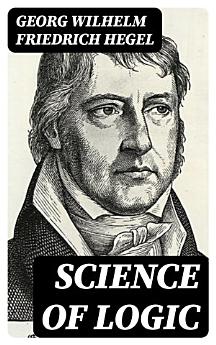Science of Logic
Georg Wilhelm Friedrich Hegel
nën 2022 · DigiCat
Libër elektronik
310
Faqe
family_home
I përshtatshëm
info
reportVlerësimet dhe komentet nuk janë të verifikuara Mëso më shumë
Rreth këtij libri elektronik
Georg Wilhelm Friedrich Hegel's "Science of Logic" is a profound exploration of the nature and development of logic as a dialectical process. Written in the early 19th century, the text reflects Hegel's philosophical project to reconcile ideas of contradiction and unity, where he meticulously dissects traditional logical structures. Employing a dense, yet methodical style, Hegel transforms logic from a mere tool for scientific inquiry into an organic system that captures the dynamic and evolving nature of reality itself. Notably, the work offers a systematic account of concepts such as being, essence, and notion, thus situating itself within the broader context of German Idealism. Hegel, a pivotal figure in Western philosophy, was deeply influenced by the tumultuous socio-political landscape of his time, particularly the aftermath of the French Revolution. His engagement with metaphysics and epistemology paved the way for this foundational work, as Hegel sought to articulate a comprehensive framework that accounted for human thought and its evolution in the face of historical development. His intellectual environment, steeped in Enlightenment ideals yet marked by emerging contradictions, directly shaped the themes present in "Science of Logic." This seminal work is recommended for readers keen on understanding the intricacies of Hegelian thought and its enduring impact on contemporary philosophy. With its ambitious scope and innovative treatment of logic, "Science of Logic" challenges readers to reconsider the relationship between thought and reality, making it an essential read for students of philosophy, logic, and even the social sciences.
Rreth autorit
Georg Wilhelm Friedrich Hegel (1770–1831) was a profound German philosopher, who is best recognized for his significant contributions to the realms of metaphysics, epistemology, political philosophy, ethics, and aesthetics. A central figure in German Idealism, he developed a comprehensive philosophical framework, or 'system,' which he envisioned as unveiling the structure of reality itself. Hegel's philosophy is encapsulated in his dialectical method, an approach that suggests that history progresses through a series of contradictions and their resolutions, ultimately leading to a form of absolute knowledge. One of Hegel's most notable works is the 'Science of Logic' ('Wissenschaft der Logik'), published in three volumes between 1812 and 1816. This formidable text is a cornerstone of his intellectual edifice and illustrates his revolutionary take on the principles of logic and the nature of thought. Here, Hegel argues that the true structure of thought resides in dialectical reasoning, rather than in the formal logic of his predecessors. His emphasis on the processual nature of reality and thought, and the unity of content and form, exemplifies his method and profoundly influenced subsequent philosophical traditions such as Marxism, existentialism, and various strains of contemporary thought. Hegel's style, dense and challenging, continues to provide fertile ground for scholars and students of philosophy.
Vlerëso këtë libër elektronik
Na trego se çfarë mendon.
Informacione për leximin
Telefona inteligjentë dhe tabletë
Instalo aplikacionin "Librat e Google Play" për Android dhe iPad/iPhone. Ai sinkronizohet automatikisht me llogarinë tënde dhe të lejon të lexosh online dhe offline kudo që të ndodhesh.
Laptopë dhe kompjuterë
Mund të dëgjosh librat me audio të blerë në Google Play duke përdorur shfletuesin e uebit të kompjuterit.
Lexuesit elektronikë dhe pajisjet e tjera
Për të lexuar në pajisjet me bojë elektronike si p.sh. lexuesit e librave elektronikë Kobo, do të të duhet të shkarkosh një skedar dhe ta transferosh atë te pajisja jote. Ndiq udhëzimet e detajuara në Qendrën e ndihmës për të transferuar skedarët te lexuesit e mbështetur të librave elektronikë.








